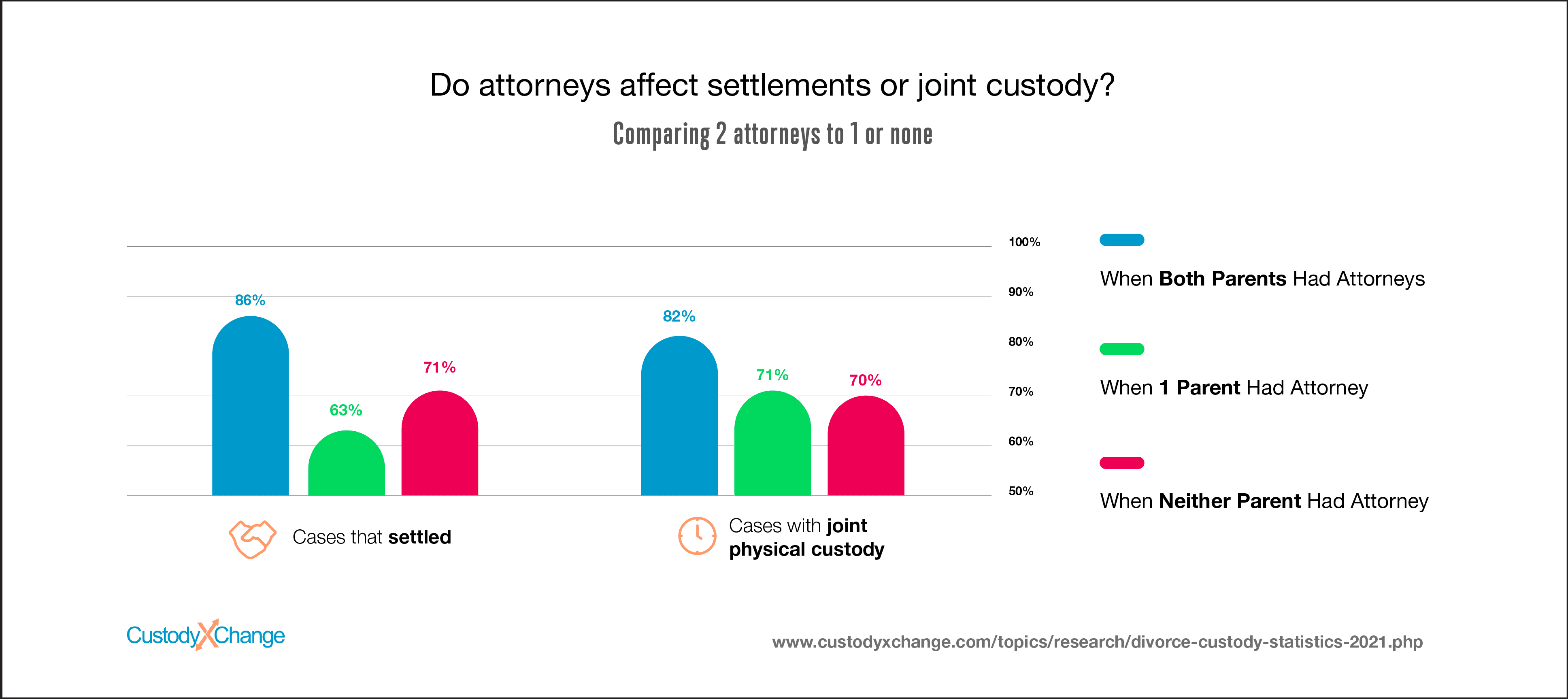Divorce is a complex process that can have a significant impact on individuals and their families. It involves legal, financial, and emotional considerations, making it a challenging journey for all parties involved. While every divorce case is unique, there are common themes and challenges that arise in the settlement process.
In this article, we will delve into real-life case studies to gain insights and learn valuable lessons about the complexities of divorce settlements. From the initial stages of separation to the final agreement, we will explore the crucial factors that shape the outcome of a divorce settlement.
Overview of Divorce Settlements
A divorce settlement is the legal agreement between two spouses that outlines the terms of their separation, including child custody, division of assets, and spousal support. It is typically reached through negotiation or mediation, with the goal of avoiding a lengthy and costly court battle.
The process of reaching a settlement can vary depending on the nature of the divorce and the willingness of both parties to cooperate. However, in most cases, it involves several key steps, including:
- Filing for divorce: One spouse must file a petition for divorce, stating the reasons for the dissolution of the marriage.
- Gathering information: Both parties must disclose all financial and personal information to facilitate the division of assets and determination of support.
- Negotiations: This step involves discussions and negotiations between the spouses and their respective legal representatives.
- Mediation: If negotiations fail, a mediator may be brought in to help facilitate an agreement.
- Finalization: Once an agreement is reached, it is presented to a judge for approval and becomes legally binding.
It is essential to note that divorce settlements can be emotionally charged and challenging for all parties involved. Therefore, seeking professional legal assistance is crucial to navigate the complexities and protect one’s rights.
Importance of Legal Representation
Navigating a divorce settlement without legal representation can be a risky endeavor. The legal process of divorce can be confusing and overwhelming, especially for individuals who have limited knowledge of the law. Having a skilled divorce attorney can provide invaluable guidance and support during this challenging time.
In the case of Sarah and John, both parties opted to seek legal representation to ensure their rights were protected and their needs were met in the settlement. Their attorneys played a significant role in negotiating a fair agreement and addressing any disputes that arose during the process.
Having legal representation also allows for objective decision-making and ensures that all necessary legal processes are followed. Additionally, an experienced attorney can provide valuable insights into the potential outcomes of specific decisions, helping the parties make informed choices.
Division of Assets

One of the most complex aspects of a divorce settlement is the division of assets. In most cases, marital assets, which include properties, savings, and investments acquired during the marriage, are divided equitably between the spouses. However, determining what is considered a fair distribution can be challenging.
In the case of Sarah and John, their primary asset was John’s successful business. While he had built it during the marriage, they had jointly contributed to its success, making it subject to division. After much negotiation and evaluation of the business, it was determined that Sarah would receive a portion of the business’s profits for a set number of years.
Other factors that may influence the division of assets include the length of the marriage, each spouse’s financial contributions, and the standard of living established during the marriage. In high-net-worth divorces, there may also be additional considerations, such as offshore accounts, investments, and other complex assets.
Prenuptial Agreements
Prenuptial agreements, also known as prenups, can significantly impact the division of assets in a divorce settlement. These agreements are made before marriage and outline how assets will be divided in the event of a divorce. They can also include provisions for spousal support and child custody.
In the case of Sarah and John, they had a prenuptial agreement that stipulated that each party would retain their respective assets in the event of a divorce. However, since they had acquired significant assets during their marriage, this agreement was modified to ensure a fair distribution.
Prenuptial agreements can help streamline the divorce settlement process, as long as they are valid and enforceable. Both parties must have entered into the agreement voluntarily, with full disclosure of their financial information, and with the assistance of independent legal counsel.
Child Custody and Support Arrangements
Children are often the most affected in a divorce, and determining child custody and support arrangements can be emotionally charged. In most cases, both parents share the responsibility of raising their children, even after a divorce.
In the case of Sarah and John, they had two children, a ten-year-old son and a six-year-old daughter. After much negotiation, they agreed to share joint physical and legal custody. This arrangement allowed both parents to spend equal time with their children and make decisions together regarding their upbringing.
Determining child support is also a crucial aspect of a divorce settlement that involves careful considerations. The amount of support is typically based on the state’s child support guidelines, taking into account factors such as the parents’ income, health insurance costs, and childcare expenses.
Impact of Parental Alienation
Unfortunately, in some cases, one parent may try to alienate the other from the children’s lives during a divorce. This tactic, known as parental alienation, can have a significant impact on the well-being of the children and the outcome of the custody arrangement.
Parental alienation occurs when one parent undermines the relationship between the children and the other parent by making negative comments or withholding contact. It can negatively affect the children’s emotional and psychological well-being, leading to long-term consequences.
If parental alienation is suspected, it is crucial to take legal action and seek the necessary support and counseling for the children. Ultimately, the court will base its decision on what is in the best interest of the children, and any attempts to alienate one parent may backfire.
Spousal Support and Alimony
Spousal support, also known as alimony, is financial assistance from one spouse to the other after a divorce. The purpose of this support is to help the lower-earning spouse maintain a similar standard of living they had during the marriage.
In the case of Sarah and John, Sarah had been a stay-at-home mother for the duration of their marriage, while John was the primary breadwinner. As a result, Sarah was entitled to spousal support to help her transition into being financially independent.
The amount and duration of spousal support can vary depending on several factors, such as the length of the marriage, each spouse’s earning capacity, and their respective contributions during the marriage. It is essential to consult with a knowledgeable attorney to determine the appropriate amount and duration of spousal support in a specific case.
Handling Debt Division
Divorce often involves not only the division of assets but also the division of debt acquired during the marriage. Debts such as mortgages, credit card balances, and loans must be allocated fairly between the spouses.
In the case of Sarah and John, they had accumulated significant credit card debt during their marriage. They were able to reach an agreement on how to divide the debt based on who incurred the debt and the ability to repay it.
It is essential to note that even if the court orders one spouse to pay off a joint debt, creditors can still hold both parties liable. Therefore, it is crucial to make sure all debts are accounted for and paid off during the divorce settlement process.
Tax Implications in Divorce Settlements
Divorce can have significant tax implications for both parties, and it is crucial to consider these factors during the settlement process. For example, the division of certain assets may result in capital gains or losses, which can affect each spouse’s tax obligations.
In the case of Sarah and John, they owned a rental property that had increased significantly in value since its purchase. As part of their settlement, they agreed to sell the property and split the proceeds. However, they consulted with their respective tax advisors to determine the most advantageous approach in terms of potential taxes.
It is essential to work closely with a tax professional when making decisions about the division of assets during a divorce. Failure to consider the tax implications can result in significant financial losses for one or both parties.
Common Disputes and How They Are Resolved
Divorce settlements are not always smooth sailing, and disputes can arise at any stage of the process. Some of the most common disputes include disagreements over child custody, division of assets, and spousal support.
In the case of Sarah and John, they were able to reach an agreement on most aspects of their settlement. However, they did experience some challenges when it came to dividing their business and determining the appropriate amount of spousal support.
To resolve these disputes, they sought the help of a mediator, who facilitated discussions and helped them find common ground. In cases where mediation is unsuccessful, the court will make a ruling based on the evidence presented by both parties.
Lessons Learned from Notable Cases

While every divorce case is unique, there are valuable lessons we can learn from notable divorce settlements. One such example is the high-profile divorce between Amazon CEO Jeff Bezos and his ex-wife MacKenzie Bezos.
After 25 years of marriage, the couple announced their divorce in January 2019. In July of the same year, they reached a settlement, with MacKenzie receiving 4% of Amazon’s shares, worth approximately $38 billion. This settlement made MacKenzie one of the wealthiest women in the world.
Lessons learned from this case include the importance of a prenuptial agreement, especially when significant assets are at stake. It also highlights the potential impact of a spouse’s financial contributions to a business during the marriage and how it can affect the division of assets in the event of a divorce.
Conclusion
Navigating a divorce settlement is a challenging and emotional journey for all parties involved. While every case is unique, there are common themes and considerations that can shape the outcome of the settlement. Seeking professional legal representation, considering tax implications, and addressing any disputes promptly are crucial steps in achieving a fair and satisfactory agreement.
Divorce settlements require careful planning and consideration to ensure the best interests of all parties, especially children, are protected. It is essential to consult with experienced attorneys to guide you through the process and help you make informed decisions that will have long-term implications on your life.

